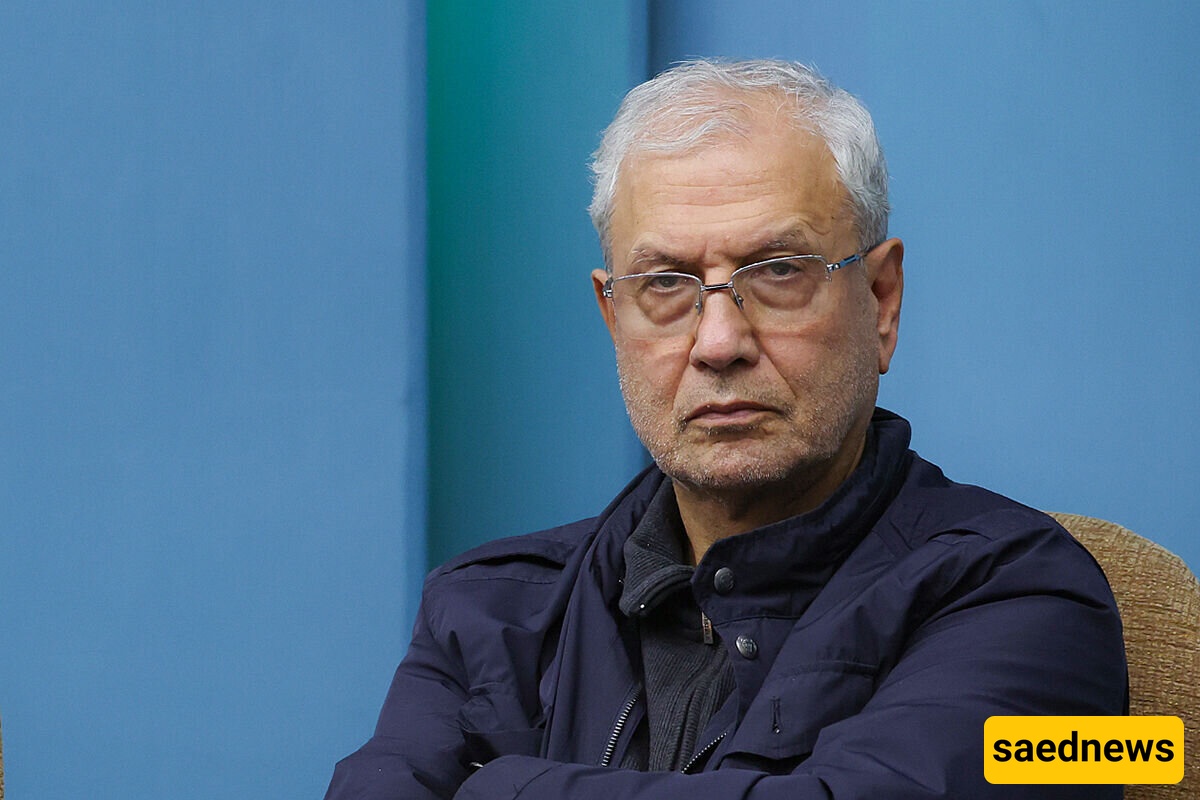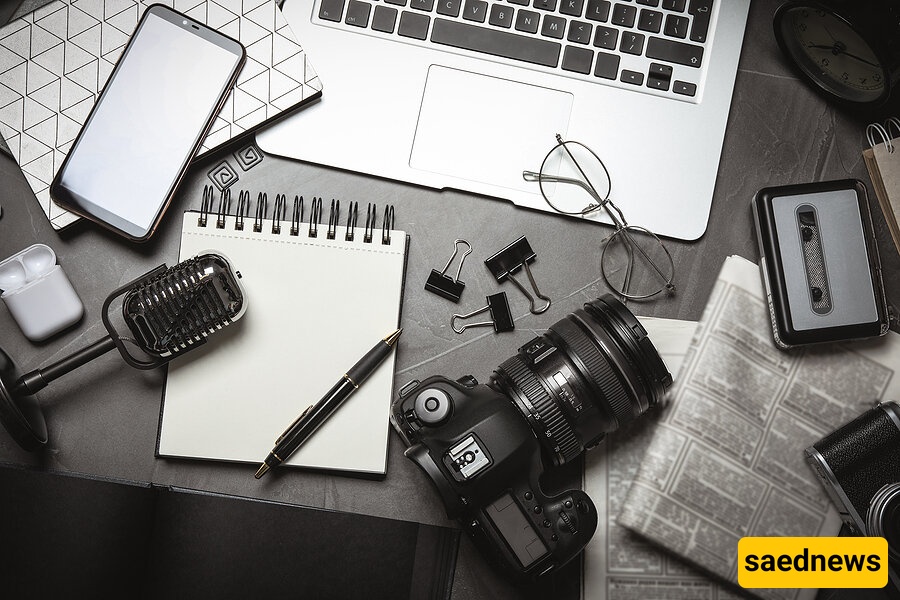SAEDNEWS: In a reflective editorial for Etemad, former government spokesman Ali Rabiei highlighted the deep challenges Iranian journalists face—ranging from censorship and internet restrictions to the loss of the “first narrative” in wartime.

Accordng to Saed News, Ali Rabiei, in an op-ed titled “Wars Begin with Words” published in Etemad newspaper, wrote:
Every year on National Journalists’ Day, I reflect on various aspects of journalism and the lives of journalists in our country. Job insecurity, low income, working for multiple outlets simultaneously, and—most importantly—the occupational hazards of being perceived as a “security subject” have made this profession especially difficult, particularly for those writing in independent and critical media. Yet society’s view of journalists has generally been empathetic and respectful.

In Iran, Journalists’ Day began with two bullets fired by ignorance, bigotry, and terrorism into the body of a reporter—martyr Mahmoud Saremi. This year, too, we commemorate the day with the memory of twelve reporters who lost their lives in the twelve-day national defense.
I intend to base this column on the discussions from a recent meeting on “journalism in wartime.” Veteran journalist Sargis Baresqian began with the profound remark: “Wars begin with words.” He stressed the importance of recognizing the role of the propaganda machinery and psychological operations deployed by aggressors against Iran.
Baresqian pointed to a critical weakness: “Due to restrictive mindsets, Iran lacked a media outlet capable of delivering our voice to the world. This is a major structural flaw in Iran’s media landscape.” He asked a pressing question: who is responsible for safeguarding the public’s mental security? He stressed that war damages not only homes but also the spirit and psyche of society.
In my view, we must create conditions for diverse voices within the country to be heard—voices able to write freely and critically in every decisive moment—so that Iranian journalism can grow into a force recognized at regional and global levels. Such continuity will produce patriotic Iranian columnists and analysts with international influence.
According to well-known cartoonist Hadi Heidari, national security is strengthened through strong media. Policymakers, he argued, should enable the growth of media institutions. Heidari warned of a serious problem: the loss of Iran’s media authority from domestic to foreign outlets. Iranian journalists, he noted, face multiple—and even competing—oversight bodies, while also enduring discriminatory oversight: whether an article is published often depends on who wrote it and in which outlet.
Heidari sees the creation of private media networks and enabling the public’s voice inside the country as essential in today’s Iran. He emphasized the need for a joint national media task force composed of people committed to Iran—a recommendation I consider sound and necessary.
Mehrak Mahmoudi, a technology journalist, offered a subtle observation: the old division between “war-experienced” and “war-unexperienced” no longer applies. Solidarity in journalism, he argued, is not limited to solidarity with the state but also with the people. Wartime journalism is a middle path—not only valid but essential. Mahmoudi also raised the issue of the internet, media ownership, and journalism, noting that inevitable staff cuts in online media—especially under current internet conditions—mean most outlets can only survive briefly.
Mahmoudi said internet restrictions were so severe during the war that only “tenth-hand news” was produced domestically, while multiple foreign media outlets built the first narrative on events in Iran. He likened the internet to a weapon for the media in wartime, noting that both internet restrictions and security fears caused news delays and loss of influence. Heidari, too, stressed the importance of creating the first narrative—a possibility, he lamented, denied to domestic journalism during the war.
Field reporter and columnist Ghazal Khezrati argued that the security-based view toward the press prevented trust-building coverage and weakened resistance against foreign media narratives. Many journalists, in addition to facing other constraints, agreed that self-censorship was driven by fear of consequences. Khezrati said journalists were barred from reporting on the destruction caused by Israeli strikes, with such coverage limited exclusively to state broadcaster IRIB—resulting in a lack of participation from other media.
I believe that allowing journalists to document destruction and convey the voices of those harmed by aggression strengthens national security interests and is far more beneficial than some of the considerations currently in place.
In closing, Akbar Montajabi, head of the Iranian Journalists Association, said that various imposed constraints have turned media outlets into “pseudo-media.” The lack of content with real news value causes regression. Criticizing the notion of becoming a “factory of silence,” he stressed the need to lift restrictions and to support and strengthen the press. Montajabi, speaking in defense of journalists, expressed concern over 150 journalists losing their jobs and urged the government to safeguard journalists’ job security.
An experienced newspaper reader attending the meeting highlighted a notable phenomenon in Iran’s political and media environment: “Some, under the banner of anti-Americanism, are actually promoting pro-American agendas.”
I consider this a bitter reality of recent decades in Iran. See how those who label every dissenting voice as “American” have, in effect, poured water into the mill of the Zionist regime. When an artist, writer, or political activist tried to mediate and offered even mild criticism, they were branded as speaking for foreigners. And so, the real voices of foreign actors and enemies of this land grew louder and louder. This participant’s remarks will form the basis of my next column.
In these days of national defense, we saw how many untapped national capacities exist: a journalist who, after leaving prison, wrote during the war against Israel; a philosopher in exile who became a whistleblower against foreign conspiracies; a female reporter who, driven by patriotic passion, even used foreign platforms to defend her country and expose the aggressors. These are the “hard core” of Iran.

